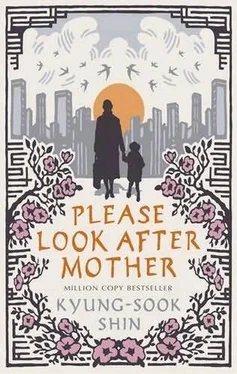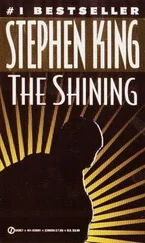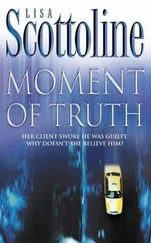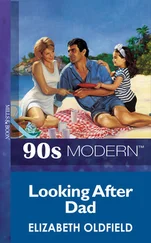They have faded-promises he made to himself for Mom, who changed places with him in the night duty room to protect him from the draft, saying, “I can fall asleep better if I’m next to the wall.” The pledge he had made that Mom would sleep in a warm room when she came back to this city.
He takes a cigarette from his pocket and puts it in his mouth. He doesn’t know exactly when it happened, but at some point his emotions ceased to belong only to him. He went about his life, having mostly forgotten about Mom. What was I doing when Mom was left behind on that unfamiliar subway-station platform, having failed to get on the train with Father? He looks up once more at the office and turns back. What was I doing? He hangs his head. The day before Mom went missing, he went out drinking with his co-workers, but it didn’t end well. His co-worker Kim, who was usually respectful and polite, made a subtle dig at him after a few drinks, pronouncing him “clever.” At work, Hyong-chol was in charge of the sale of the apartments near Songdo, in Inchon, and Kim oversaw the sale of the apartments near Yongin. Kim’s remark referred to Hyong-chol’s idea of giving out concert tickets as promotional gifts for people coming to the model home. This wasn’t his idea but that of his sister, the writer. When Chi-hon was over at his house, his wife gave her a bath mat that had been the promotional gift for the last apartment sale, and his sister said, “I don’t know why companies think homemakers like this kind of thing.”
He had been wondering what to give as a promotional gift this time, so he asked, “Well, what do you think would be memorable?”
“I’m not sure, but people quickly forget about things like this. Wouldn’t it be better if it were a fountain pen or something? Think about it. Do you think your wife would be happy if you got her kitchen gadgets for her birthday? If you get a mat to promote an apartment sale, you’d just forget about it. But I think I would be pleasantly surprised if it was a book or a movie ticket, and I’d probably remember it. If I had to make plans to use it, I’d keep remembering how I got it. Am I the only one who thinks like that?” His sister left the mat behind when she went home.
At a meeting the following week, someone mentioned promotional gifts. Everyone liked his suggestion of a cultural gift. A singer with many middle-aged fans was performing, in a convenient coincidence, a long-running concert series, so Hyong-chol got a block of tickets. He was praised by his boss; perhaps it was a singer his boss liked. A survey showed that the concert tickets heightened the company’s image. Though this probably had nothing to do with the promotional gifts, his apartments in Songdo had almost all sold, whereas the occupancy rate of Kim’s Yongin apartments stood at only 60 percent. So, when Kim made the remark, Hyong-chol just laughed it off, saying it was dumb luck, but after a few more drinks, Kim commented that if Hyong-chol used his clever brain somewhere else he could have become the head prosecutor. Kim knew that Hyong-chol had gone to a law college and had studied for the bar exam. He went on to comment that he didn’t know what scheme Hyong-chol had used to get promoted so quickly when he wasn’t even a graduate of Yonsei University or Koryo University, which produced the main power players in the company. In the end, Hyong-chol dumped out the liquor that Kim had poured in his glass and left. The next morning, when his wife said she would visit their daughter, Chin, instead of going to Seoul Station, he’d planned to meet his parents himself. Father wanted to stop by his younger son’s, who had just moved to a new place. Hyong-chol had meant to pick them up and drop them off at his brother’s, but once he was at work he felt a chill coming on and had a headache. Father did say that he could find his way… Instead of going to Seoul Station, Hyong-chol went to a sauna near work. As he sweated in the sauna, which he often visited the day after he drank too much, Father was getting on the train without Mom.

As a boy, Hyong-chol made up his mind to become a prosecutor to get Mom to return home. She had left because she was disappointed by Father. One spring day, as flowers bloomed all around the village, Father had brought home a woman with fair skin, who smelled fragrant, like face powder. When the woman came in through the front gate, Mom left through the back. The woman, trying to buy her way into Hyong-chol’s cold heart, topped his lunch every day with a fried egg. He would storm out of the house with his lunch container, which the woman had wrapped carefully in a scarf, and he’d leave it on top of the large condiment jars in the back yard and go to school. His siblings, watching him always, if surreptitiously, took the lunches the woman made. One misty morning, on the way to school, he gathered his siblings at the creek snaking by the cemetery. He dug a hole near a blooming weeping willow and made them bury their lunches. His brother tried to run away with his lunch, but Hyong-chol caught him and hit him. His sisters obediently buried their lunches. He thought the woman would no longer be able to make them lunch. But the woman went to town and bought new containers. They weren’t yellowish aluminum containers but special ones that kept the rice warm. Awed, his siblings touched the new containers cautiously. When the woman handed them their lunches, his brother and sisters looked at him. He would push his lunch toward the end of the porch and leave for school alone. His siblings would wait until he was out of sight, then go to school themselves, carrying their warm lunches in their hands. Perhaps having heard from someone that he wasn’t taking the lunches made by the woman and that he wasn’t eating, either, Mom came to school to find him. It was about ten days after the woman had come to live with them.
“Mom!” Tears spilled from his eyes.
Mom led him to the hill behind the school. She pulled up the legs of his pants to reveal his smooth calves, grabbed a switch, and hit them.
“Why aren’t you eating? Did you think I would be happy if you didn’t eat?”
Mom’s thrashing was harsh. He had been upset that his siblings weren’t listening to him, and now he couldn’t understand why Mom was whipping him. His heart brimmed with resentment. He didn’t know why she was so angry.
“Are you going to take your lunch? Are you?”
“No!”
“You little…”
Mom’s whipping became swifter. He didn’t admit it hurt, not once, and soon Mom grew tired. Instead of running away, he stood still, silent, and suffered her blows.
“Even now?”
The redness bloomed into blood on his calves.
“Even now!” he yelled.
Finally, Mom tossed the switch away. “God, you brat! Hyong-chol!” she said, embracing him and bursting into sobs. Eventually, she stopped, and tried to persuade him. He had to eat, she said, no matter who cooked the meals; she would be less sad if he ate well. Sadness. It was the first time he’d heard Mom say the word “sad.” He didn’t know why his eating properly would make Mom less sad. Since Mom had left because of that woman, it seemed to him that she would be sad if he ate the woman’s food, but she told him the opposite was true. She would be less sad if he ate, even if it was that woman’s food. No, he didn’t understand it, but since he didn’t want her to be sad, he said, grouchily, “I’ll eat it.”
“That’s my boy.” Mom’s eyes, filled with tears, lit up along with her smile.
“Then promise you’ll come home!” he insisted.
Mom faltered. “I don’t want to come home.”
“Why? Why?”
“I never want to see your father again.”
Читать дальше












